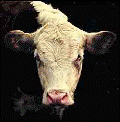Animal Science, Department of

Department of Animal Science: Dissertations, Theses, and Student Research
Date of this Version
12-2010
Document Type
Thesis
Abstract
Since 2004, fertilizer prices have doubled due to increases in energy prices for production and increased demand for N fertilizer due to high grain prices. This leads to questioning the cost effectiveness of increasing forage production with N fertilizer. At the same time, an increase in ethanol production creates an increase in the production of by-products of the ethanol industry, such as distillers grains. Distillers grains have been shown to be an excellent feed for ruminants both as a supplement while grazing and as part of a complete diet in the feedlot. Distillers grains provide protein, fat, and highly digestible fiber to the animal and are relatively inexpensive compared to other energy and protein sources. Feeding distillers grains as a supplement to backgrounding calves will increase N in their urine. If this excess N in the urine can be taken up by plants it may be more efficient to feed distillers grains as a supplement and fertilize the pastures with excess urinary N instead of inorganic N fertilizer.
Supplementing growing cattle with dried distillers grains increased ADG compared to non-supplemented cattle. Paddocks that received N fertilizer had the most forage production while paddocks with supplemented cattle had intermediate production and paddocks having non-supplemented cattle and receiving no N fertilizer had the least forage production. This allowed paddocks that received fertilizer and paddocks with supplemented cattle to be stocked at the same rate, although cattle receiving supplement weighed 41 kg more at the end of the trial compared to both fertilized and non-fertilized treatments.
Profitability was increased for cattle receiving distillers grains supplement and not different between control and N fertilizer treatments. This was due to increased land costs for the control because of decreased forage production. Cost of gain and breakeven prices were lowest for supplemented cattle. In the future, the relationship between prices for land, N fertilizer, and protein supplements will affect the profitability of pasture based backgrounding systems.
Advisors: Terry J. Klopfenstein and Galen E. Erickson


Comments
A THESIS Presented to the Faculty of The Graduate College at the University of Nebraska In Partial Fulfillment of Requirements For the Degree of Master of Science, Major: Animal Science, Under the Supervision of Professors Terry J. Klopfenstein and Galen E. Erickson. Lincoln, Nebraska: December, 2010
Copyright 2010 Andrea Watson